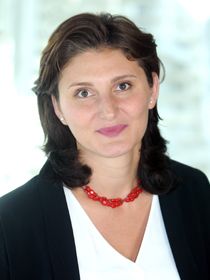Austrian universities are legally obliged to create accessibility - in terms of access to buildings, teaching and communication. Wherever accessibility is not or cannot be guaranteed for everyone, appropriate measures must be taken to enable students to participate fully.
Compensation for disadvantages is an important instrument for compensating for disability-related disadvantages. These include, in particular, individually designed examination adaptations and services, such as the provision of accessible literature or technical aids.
Alternative examination methods
If you are unable to take an examination due to a disability or impairment, you have the right to an alternative examination method tailored to your needs (§ 59 para. 1 no. 12 University Law).
Alternative examination methods are examinations with the same content and requirements, but in a different examination mode. This means that the scope and content of the requirements of the examinations specified in the curricula are not affected. For this reason, no note about the examination modification is made in the examination certificate.
Alternative examination methods are intended to compensate for disadvantages in the study programme due to an impairment on an individual and situation-specific basis. The compensation must be proven necessary and appropriate. The determination of the different examination method is therefore always based on the individual disability.
Alternative examination methods can be agreed for
- Oral and written examinations
- Presentations
- Deadlines for submission
- Excursions
Examples:
- Oral instead of written examination (and vice versa)
- Extended examination times
- Presentation or written elaboration instead of group work
- Written work instead of participation in an excursion
- Examination in a separate room
- Extension of submission deadlines
- Examinations with sign language interpreting, assistance or technical aids
The prerequisite for the granting of a different examination method is a diagnosis-free, specialist medical certificate.
Please contact your responsible Study Program Director or the Servicepoint "Accessable studying" as early as possible (at least 6 weeks before the examination) and discuss the appropriate examination modification for you.
Support in everyday study life
In order to ensure barrier-free studies, the University for Continuing Education Krems offers a range of support services tailored to your individual situation in everyday student life.
This includes in particular
- Provision of work aids and technical aids
- Organization of a study or communication assistant
- Individually designed arrangements in the courses
- Advice and guidance
Application forms
Contact
Tags
